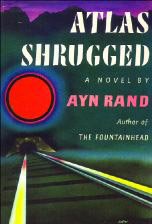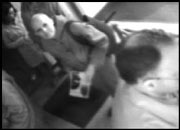Five decades ago, the poet Philip Whalen lived in a house on Roosevelt Way. Writer’s block had plagued him for some time; then one night he ate three chopped peyote buds at a party and, says John Suiter, “got very productive after that.” Gary Snyder grew up in Lake City, and Jack Kerouac—though he never lived here—passed through Seattle on his way north to the mountains. John Suiter, suited in a shiny black leather jacket, spoke about and showed slides from his new book, Poets on the Peaks: Gary Snyder, Philip Whalen, and Jack Kerouac on the North Cascades, in a nearly full lecture hall at UW last week.
The three poets were fire lookouts in the North Cascades in the 1950s and wrote poetry while they were there. Kerouac did his most sensitive work there (soberly, mind you—he went to the mountains to receive enlightenment and brought no alcohol with him), writing unusually earthy lines: “The little flowers grew everywhere around the rocks, and no one had asked them to grow, or me to grow.”
Among Suiter’s photos is a shot of the river by which Kerouac sat and wrote many of the haiku that later became full sentences in The Dharma Bums. (Suiter noted, as have critics, that while The Dharma Bums is basically a sloppy book—by a man otherwise known for being a sloppy drunk—its sentences are packed with energy.) In addition to Suiter’s photos, the slides included a handful of old photographs taken by others: of the young Gary Snyder in the half-lotus position, cliffside; of Philip Whalen, holding not peyote but a cup of coffee, in the doorway of a fire lookout; and of a sexy, happy-looking Jack Kerouac, some years after his mountain days (holding, you guessed it, a drink).
Suiter’s book further exalts Kerouac and company, if such a thing is possible. The photos are masterful, grandiose, and stunningly deceptive: Once again these men are made out to be impossibly important (like mountains, if you will), instead of being portrayed as they actually were (which was, at best, soft, humpy hills).
The romantic notion that clings to the Beats is inexplicable, incredibly persistent, and kind of cute. We love these men more than we love their work, and none of us more so than Suiter; as he says, “These men put wilderness and wildness back into American poetry.”
The new lecture series “Wilderness and the Imagination,” a partnership between the University Bookstore and the North Cascades Institute, continues Sept. 17 with David James Duncan—a really good writer who rarely tours. Check the books calendar that week for more info.







